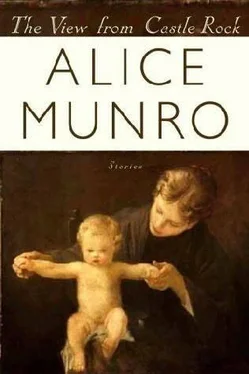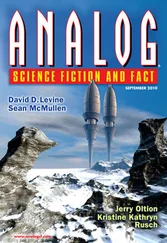So why should he not think that marriage was possible, if he hadn’t thought about it already?
That winter he lived with only the board walls between himself and the weather and with temporary boards shuttering the window spaces. He put up the inside partitions and built the stairs and closets and laid the final floorboards of oak and pine.
Next summer he built the brick chimney to replace the stovepipe sticking out of the roof. And he covered the whole structure with fresh red bricks, set together as well as any bricklayer might have done them. Windows were put into place, plank doors removed and ready-made doors hung, back and front. An up-to-date stove installed, with baking oven and warming oven and the reservoir for heating water. The pipes fitted into the new chimney. The big job left was the plastering of the inside walls, and he was ready for that when the weather grew chilly. A coat of rough plaster first, then the painstakingly smoothed plaster on top. He understood that wallpaper should go over that but could not think how to choose it. Meanwhile all the rooms looked wonderfully bright, with the plaster shining indoors and the snow without.
The need for furnishings took him by surprise. In the house where he had lived with his brothers and sisters, Spartan preferences ruled. No curtains, only dark-green blinds, bare floors, hard chairs, no sofas, shelves instead of cupboards. Clothing hanging from hooks on the back of doors instead of in wardrobes-more clothes than could be managed that way being seen as excessive. He did not necessarily wish to copy this style, but he had such small experience of other houses that he did not know what other way to manage. He could hardly afford-or wish-to make the place look like the hotel. He made do, for the present, with the discards placed in the barn. A chair with two rungs missing, some rough shelving, a table that chickens had been plucked on, a cot with horse blankets laid on it for a mattress. All this was set up in the same room as the stove, the other rooms being left entirely bare.
Susan had decreed, when they all lived together, that Maggie should take care of Sandy’s clothing, Lizzie of Forrest’s, Annie of Simon’s, she herself of John’s. This meant ironing and mending and darning socks, and knitting scarves and vests and making new shirts as might be needed. Lizzie was not supposed to continue looking after Forrest-or to have anything at all to do with him-after he moved out. But a time came-five or six years after his house had been finished-when she took it upon herself to see how he was getting on. Susan was ill by this time, greatly weakened by pernicious anemia, so that her rules were not always enforced.
Forrest had quit his job at the planing mill. The reason being, so people said, that he could not bear the razzing he got all the time about marrying. Stories circulated, about his going to Toronto on the train, and sitting in Union Station all day long, looking for a woman who would fill the bill but not finding her. Also a story of his writing to an agency in the United States, then hiding in his cellar when some hefty female came knocking on his door. The younger fellows at the mill were particularly hard on him, with their preposterous advice.
He got a job as a janitor at the Presbyterian church, where he did not have to see anybody except the minister or an occasional officious Member of the Session-neither of these being the sort to make crude or personal remarks.
Lizzie crossed the field on a spring afternoon and knocked on his door. No answer. It was not locked, however, and she went in.
Forrest was not asleep. He was lying fully dressed on the cot, with his arms behind his head.
“Are you sick?” said Lizzie. None of them ever lay down in the daytime unless they were sick.
Forrest said no. He did not reproach her for coming in without being asked, but he did not welcome her either.
The place smelled bad. No wallpaper had ever been put up and there was still some whiff of raw plaster. Also the smell of horse blankets and of other clothing not washed for a long time, if ever. And of ancient grease in the frying pan and bitter tea leaves in the pot (Forrest had taken up the fancy habit of drinking tea instead of just hot water). The windows were bleary in the spring sunlight and dead flies lay on their sills.
“Did Susan send you?” Forrest said.
“No,” said Lizzie. “She’s not herself.”
He didn’t have anything to say to that. “Did Simon?”
“I came on my own.” Lizzie put down the parcel she was carrying and looked about for a broom. “We are all well at the house,” she said, just as if he had asked. “Except for Susan.”
In the parcel was a new shirt of blue cotton, and half a loaf of bread and a fresh chunk of butter. All bread that the sisters made was excellent, and the butter tasty, being made from the milk of Jersey cows. Lizzie had taken these things without permission.
This was the beginning of a new disposition of the family. Susan did rouse herself when Lizzie got home, enough to tell her she must go or stay. Lizzie said she would go, but to Susan’s surprise, and everybody’s, she asked for her share of household goods. Simon separated out what she should have, with severe justice, and in that way Forrest’s house was, eventually, sparsely furnished. No wallpaper was put up or curtains hung, but everything was scrubbed and gleaming. Lizzie had asked for a cow and a half dozen hens and a pig to raise, and Forrest set to work as a carpenter again, to build a barn with two stalls and a haymow. When Susan died it was discovered that she had put by a surprising nest egg, and a share of that was meted out as well. A horse was bought, and a buggy, around the first time that cars were becoming a usual thing on these roads. Forrest gave up walking to his job, and on Saturday nights he and Lizzie rode to town to shop. Lizzie reigned in her own house, like any married woman.
On one Halloween night-Halloween in those days being more of a time for serious tricks than an occasion for handouts-a bundle was left at Forrest and Lizzie’s door. Lizzie was the first to open the door in the morning. She had forgotten about Halloween, which none of the family ever paid any attention to, and when she saw the shape of the bundle she cried out, more in amazement than vexation. In its ragged wool wrappings she saw the shape of a baby, and she would have heard somehow about babies being abandoned, left on the doorstep of people who might care for them. For one whole moment she must have thought that that had happened to her, that she had actually been singled out for such a gift and duty. Then Forrest came from the back of the house to see her stoop and pick it up, and he knew at once what it was. So did she, once she felt it. A parcel of straw in sacking, tied with cords, to resemble a baby, the face marked with crayon at the appropriate place on the sacking, to crudely show a baby’s face.
Less innocent than Lizzie, Forrest caught the implication, and he grabbed the bundle from her, tore it in pieces, stuffed the pieces into the stove.
She saw that this was a thing she had better not ask about, or even mention in the future, and she never did. Neither did he mention it, and the story survived only as rumor, always to be questioned and deplored by those who passed it on.
“They were devoted to each other,” said my mother, who had never actually met them, but was generally in favor of brotherly-sisterly relationships, unsullied by sex.
My father had seen them at church, when he was a child, and might have visited them a couple of times, with his mother. They were only second cousins of his father’s and he did not think they had ever come to his parents’ house.
He did not admire them, or blame them. He wondered at them.
Читать дальше












